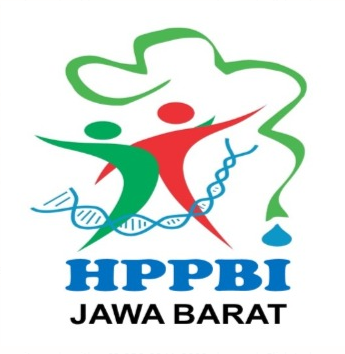Application of the Problem Based Learning (PBL) Model on Environmental Pollution Materials to Increase Motivation and Learning Outcomes
Abstract
Motivation to learn is an encouragement both from outside and from within a person to develop interest, desire, and ability to learn and acquire new knowledge. The existence of high motivation is very important to determine success in the learning process of students. This study aims to analyze the increase in motivation and learning outcomes in natural sciences on environmental pollution through the Problem Based Learning. Methods of data collection using questionnaires, interviews, observations and tests. Implementation of this research three cycles, each cycle of activities are: planning, implementation, observation, and reflection. The results of the action research cycle I average value of learning motivation included in the sufficient category. The results of the action research cycle II mean value of learning motivation included in the sufficient category. The final results of the action in the third cycle the average value of learning motivation included in the high category. These results have exceeded the indicators of success, students so that the application of the Problem Based Learning model for 3 cycles to the motivation and learning outcomes of students experienced increase.
Keywords
References
Arief, H.S, Maulana, & Sudin, A. (2016). Meningkatkan Motivasi Belajar melalui Pendekatan Problem Based Learning(PBL). Jurnal Pena Ilmiah, 1(1), 141–150. Retrieved from https://ejournal.upi.edu/index.php/penailmiah/article/download/2945/1974
Bragaswangga, A., Ariyanto, D., & ... (2019). Peningkatan Hasil Belajar Ipa Melalui Metode Problem Based Learning (Pbl) Pada Konsep Materi Pencemaran Lingkungan Pada …. Prosiding Seminar …, September.
Ersoy, E., & Başer, N. (2014). The Effects of Problem-based Learning Method in Higher Education on Creative Thinking. Procedia - Social and Behavioral Sciences, 116, 3494–3498. https://doi.org/10.1016/j.sbspro.2014.01.790
Fatonah, C. N., Ningtias, R. A., Pertiwi, M. P., & Rostikawati, R. T. (2023). Keanekaragaman Spesies Bivalvia dan Gastropoda di Pantai Tanjung Rising Kepulauan Bangka Belitung. 24(1), 57–64.
Harun, N. F., Yusof, K. M., Jamaludin, M. Z., & Hassan, S. A. H. S. (2012). Motivation in Problem-based Learning Implementation. Procedia - Social and Behavioral Sciences, 56(Ictlhe), 233–242. https://doi.org/10.1016/j.sbspro.2012.09.650
Marhamah. (2021). Journal of Biology Education Research ( JBER ) COMBINATION OF PROBLEM BASED LEARNING MODEL AND. 2(2), 95–98.
Mufida, I., Pertiwi, M. P., & Rostikawati, R. T. (2023). Diversity of Echinoderms in Drini Beach Gunung Kidul, Yogyakarta. Jurnal ILMU DASAR, 24(1), 19. https://doi.org/10.19184/jid.v24i1.30097
Nadhira Hannifa, Diana Susanti, L. Y. S. (2022). Journal Of Biology Education Research Learning Models in Biology Learning Strategy and Design Courses. 3(2), 60–65.
Rahman, A., Munandar, S. A., Fitriani, A., Karlina, Y., & Yumriani. (2022). Pengertian Pendidikan, Ilmu Pendidikan dan Unsur-Unsur Pendidikan. Al Urwatul Wutsqa: Kajian Pendidikan Islam, 2(1), 1–8.
Ratih, S. A., Pertiwi, M. P., & Rostikawati, R. T. (2021). Mollusk diversity in the intertidal zone of Menganti Beach, Kebumen, Central Java. Depik, 10(1), 23–29. https://doi.org/10.13170/depik.10.1.18673
Rukiyati. (2019). Tujuan pendidikan nasional. Humanika, 56–69.
Setyosari, P. (2017). Menciptakan Pembelajaran Yang Efektif Dan Berkualitas. JINOTEP (Jurnal Inovasi Dan Teknologi Pembelajaran) Kajian Dan Riset Dalam Teknologi Pembelajaran, 1(5), 20–30. https://doi.org/10.17977/um031v1i12014p020
Sujana, I. W. C. (2019). Fungsi Dan Tujuan Pendidikan Indonesia. Adi Widya: Jurnal Pendidikan Dasar, 4(1), 29. https://doi.org/10.25078/aw.v4i1.927
Sukmini Arief, H., Maulana, & Sudin, A. (2016). Meningkatkan Motivasi Belajar melalui Pendekatan Problem Based Learning(PBL). Jurnal Pena Ilmiah, 1(1), 141–150.
Trianto. (2015). Model Pembelajaran Terpadu. Bumi Aksara.
Tyas, R. (2017). Kesulitan Penerapan Problem Based Learning Dalam Pembelajaran Matematika. Jurnal Tecnoscinza, 2(1), 43–52.
Widayanti, L. (2014). Peningkatan Aktivitas Belajar dan Hasil Belajar Siswa dengan Metode Problem Based Learning pada Siswa Kelas VIIA MTs Negeri Donomulyo Kulon Progo Tahun Pelajaran 2012/2013. Jurnal Fisika Indonesia, 17(49), 32–35. https://doi.org/10.22146/jfi.24410
Wini, W. M., Nerita, S., & Sari, L. Y. (2022). The Relationship of Students Learning Motivation with Biology Learning Outcomes for Class XI. Journal Of Biology Education Research (JBER), 3(1), 39–44. https://doi.org/10.55215/jber.v3i1.4649
Wisudawati, A. W., &, & Sulistyowati, E. (2014). Metodologi Pembelajaran IPA. PT Bumi Aksara.
Zulhanifah. (2015). Pengaruh Model Problem Based Learning (Pbl) Terhadap Hasil Belajar Siswa Pada Konsep Pencemaran Dan Kerusakan Lingkungan.
DOI: 10.55215/jber.v4i1.7466
 Abstract views : 414
Abstract views : 414
Refbacks
- There are currently no refbacks.
Copyright (c) 2023 Indri Pratiwi

This work is licensed under a Creative Commons Attribution-NonCommercial 4.0 International License.









